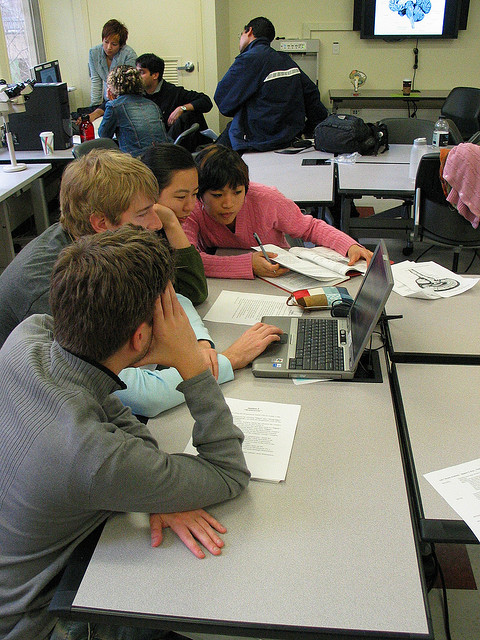Teaching Innovations at Vanderbilt: Corbette Doyle and Group Work Promises
By Faith Rovenolt, CFT undergraduate intern
 I recently had the privilege to talk with Professor Corbette Doyle, a Senior Lecturer in Organizational Leadership in the Department of Leadership, Policy, and Organizations. She has made recent changes in one aspect of her course that strikes fear into many students’ hearts: group work.
I recently had the privilege to talk with Professor Corbette Doyle, a Senior Lecturer in Organizational Leadership in the Department of Leadership, Policy, and Organizations. She has made recent changes in one aspect of her course that strikes fear into many students’ hearts: group work.
Doyle, like many professors, formed groups of students and tasked them with creating a group contract. At the end of their project, students’ evaluation of each other factored into the points assignment. But Doyle saw problems arise, problems most students who have ever done group work are familiar with.
- Freeloaders often forced more motivated students to pick up the slack.
- Peer evaluation became more about personality disputes than anything else.
- Students fear each other’s judgement and anonymously report to the teacher rather than being open.
Thus, in spite of using good practices in facilitating her groups, Doyle was still seeing some problems she wanted to address.
Aware of these problems and inspired by a CFT workshop about structuring syllabi on promises made between the instructor and students, Doyle switched from group contracts to group promises. Now, Doyle has her students make promises to each other based on how work will be conducted and what students should expect from each other. The students who most embraced this new method made specific promises on how leadership was divided and how communication would happen. End-of-project self and peer-evaluations then focused on whether group members fulfilled their promises. Crucially, if a student didn’t meet the expectations of the group promises, their peers also had to include how they communicated this to the student in question themselves.
This is more than just a matter of semantics. Making promises turns impersonal group work into a matter of personal honor. In addition, communicating with other students about where they might be falling short fosters honesty and personal growth. Student feedback on Doyle’s new approach has been positive, and she’s seen the atmosphere around group work improve. The greatest piece of evidence in support of this change, in my opinion as a student, is that groups who made these promises and evaluated each other based on them wanted to continue working together.
Another component of why I believe group work in Doyle’s classes is succeeding is how she structures groups. Through surveys and polls, she assesses students’ content knowledge and values. She then forms groups that value the same thing—grades, learning, or time efficiency—but have different knowledge levels. Putting like-minded individuals together creates group cohesion, while maintaining different knowledge levels ensures that the problem at hand can still be seen from basic levels.
I hope that more classrooms begin to take approaches similar to Doyle’s. This system can help students develop interpersonal skills that are applicable to whatever career they choose to pursue post-graduation—and over time, could turn group work from something merely tolerated to a positive aspect of their academic and personal growth.
Other ideas to help group work go smoothly can be found in the CFT’s guide to group work and LSE’s evidence-based teaching guide on group work.

Leave a Response